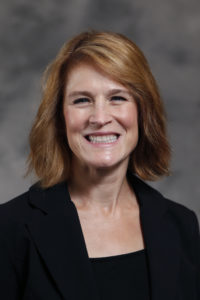Dear colleagues,

The Advanced Methods Institute is a gathering of scholars with a focus on “Advancing Qualitative Research toward Innovation, Equity, and Justice”. Why? We are living in a world filled with “wicked problems” — problems that have no formulaic solution. These interconnected systemic inequities that threaten lives and livelihoods demand innovative strategies. For example, multiply minoritized people in our communities face both macro- and microaggressions regularly. Global health inequities from birth to death in (not-yet-post-)COVID-19 environments are continually exacerbated and the effects of climate change remain for younger generations to address. Black and Brown bodies continue to be killed daily, and parents fear that their children will return home with visible or invisible scars. Education inequity is exacerbated through policy and practice. Critical Race Theory (a graduate-level theory) and books in schools are being used as political fodder. These are just a handful of very real examples of wicked problems in our current, historical moment. To be sure, these challenges are complex, entangled, exhausting, and persist even after years of struggle against colonization, imperialism, and multiple forms of oppression.
These current realities implore us as scholars to engage in an iterative process of research <–> practice as we strive to make a difference for and with communities and our environments. As researchers, it is our responsibility to engage in work across fields and disciplines to address these realities while also ensuring our scholarship is available for – and accessible to – our communities and the stakeholders who stand to benefit from it. It’s also important to develop research questions and engage with communities so, together, we answer the questions most relevant. We must do so while trying to keep ourselves whole beings (i.e., mind, body, spirit), for if you’re depleted, you may not be in a position to do your best work. Research that addresses these problems must also employ paradigms, theories, methodologies, and methods that prioritize innovation, equity, and justice. Yet, many of us were trained in traditional approaches or taught that there is only one right and objective way to address “rigor” or “quality” in our scholarship. Thus, in order to not reify dominant paradigms that have not yet addressed issues of inequity and injustice, and to produce research that changes our world, we need to change the context of our conversations about how we conduct research and add to the approaches we have to draw from so we may aptly take up this urgent work. The 2023 Advanced Methods Institute aims to do just that.
Advanced Methods Institute, sponsored by QualLab and the College of Education and Human Ecology at The Ohio State University, features award-winning qualitative scholars who will share innovations in qualitative inquiry and strategies for application for readers’ own research projects aimed to advance equity, diversity, and justice. (Really, this is a stellar and dynamic collection of scholars who will come to you from across the globe!). Building on the success of the 2021 AMI (focused on qualitative, quantitative, and mixed methods), the 2023 Institute will focus exclusively on qualitative inquiry, including the qualitative aspects of mixed methods studies. It will provide an opportunity for graduate students, postdoctoral researchers, faculty, community-based, and activist scholars to engage in the latest qualitative paradigms, methodologies, and/or congruent methods that advance innovation, equity, diversity, and justice.
The goals of the Institute are to:
- Provide groundbreaking interactive workshops on new and innovative approaches to qualitative inquiry that address equity and justice. These have been designed by some of the presenters especially for this institute (attendees will be the first to learn of & workshop these new approaches).
- Provide information on the qualitative approaches we already know and love (i.e., new materialism, discourse analysis, photovoice, critical geography, performance ethnography, interviewing techniques) with a focus on the theme of this years’ institute.
- Equip attendees with tools to enact these approaches in their own research, scholarship, and practice.
- Welcome publishers and qualitative software vendors so you may connect with each other.
- Offer an additional engaging space to connect with attendees with similar interests so you may further your own / new research collaborations (i.e., a “virtual piazza” or small “discussion rooms” for you break out into as you meet people whom you want to talk with during the institute).
The Institute has been designed with you in mind and revised based on feedback from past attendees. Attendees will have access to virtual sessions during and video recordings after the Institute; meet and greet sessions with scholars of similar interests; vendors with qualitative research tools and books; workshops that will help you consider and employ the approaches with your own research in education and/or human ecology; to name a few.
We consider this one way (of many) to engage with qualitative scholars doing important research <–> practice. In this way, we hope this event contributes to the ongoing work toward addressing the wicked problems of our time and making concerted change for the future.
We welcome you and look forward to your participation!
Penny A. Pasque, PhD
Professor, Educational Studies
Director, Qualitative Methods
Director, QualLab
Office of Research, Innovation and Collaboration (ORIC)
College of Education & Human Ecology
The Ohio State University
Hannah Reyes, M.Ed.
PhD Student
Graduate Research Associate, QualLab
The Ohio State University
Chelsea Gilbert, M.Ed.
PhD Candidate
Graduate Research Associate, QualLab
The Ohio State University

